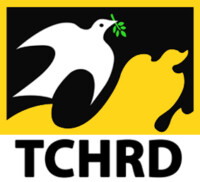
Last month, Chinese authorities announced the acceleration of the ‘pairing assistance’ program as part its overall goal to end poverty in Ba (Ch: Tongde) County (also called Ba Dzong in common Tibetan parlance) in Tsolho (Ch: Hainan) Tibetan Autonomous Prefecture, Qinghai Province, in the Tibetan province of Amdo. The ‘pairing assistance’ program is a nation-wide initiative of dispatching party members and local cadres to gather information on rural residents and adopt preventative measures to combat sensitive political issues from gaining traction among the masses.
The program is, for all practical purposes, a means to monitor and control the thoughts and activities of local Tibetans in the name of poverty alleviation. It requires party members and cadres to stay at the homes of local Tibetan nomads and farmers for weeks conducting political education sessions and gathering sensitive information. It has existed since 2012 alongside a host of other so-called ecological and poverty alleviation programs that are designed to facilitate mass surveillance and thought control.

